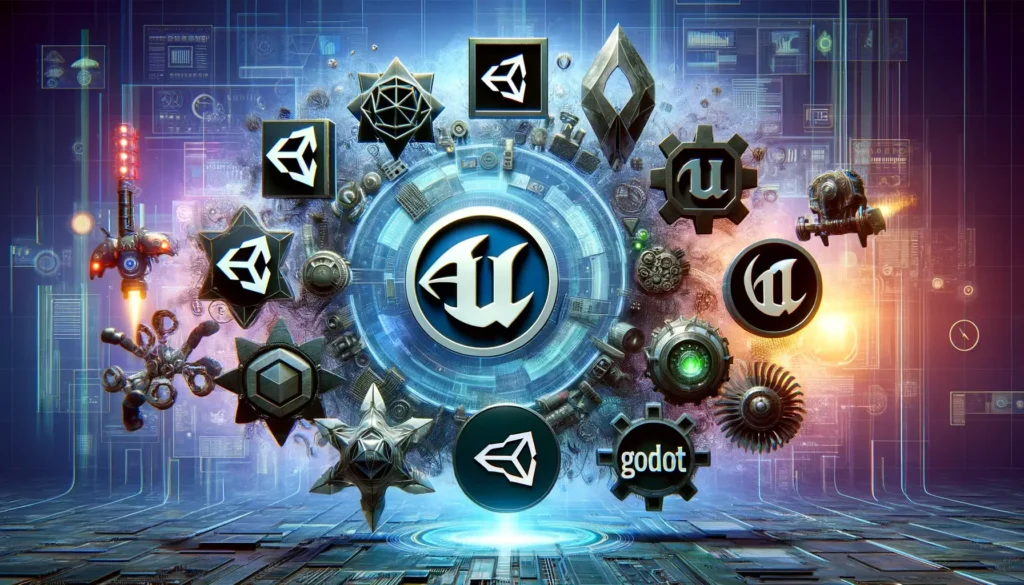
Heck yeah — this is a killer piece for indie devs, especially in 2025 when cloud-native tools are becoming more powerful and accessible than ever. Here’s a full article draft for “Top 10 Cloud-Based Game Engines for Indie Developers” — informative, approachable, and tailored for the Epic Sphere Cloud crowd.
🎮 Top 10 Cloud-Based Game Engines for Indie Developers (2025 Edition)
Gone are the days when building a game meant having a powerful local rig and a massive budget. In 2025, cloud-based game engines are giving indie developers serious tools to create, collaborate, and publish from anywhere — without the overhead.
So whether you’re building the next narrative-driven platformer, an open-world survival game, or a cozy farming sim, these cloud-powered engines are ready to help.
Here’s our curated list of the Top 10 Cloud-Based Game Engines for Indie Developers — from full-featured powerhouses to lightweight, browser-friendly tools.
🚀 1. Unity Cloud
Best For: 2D/3D cross-platform games with rich ecosystems
Why It Rocks:
- Real-time cloud collaboration
- Cloud Build for faster CI/CD pipelines
- Works across mobile, console, VR, and WebGL
- Huge asset store + community
Pro Tip: Use Unity DevOps to sync code, assets, and testing seamlessly across distributed teams.
🌐 2. PlayCanvas
Best For: Web-first, HTML5 and mobile games
Why It Rocks:
- Completely browser-based editor
- Real-time multiplayer and 3D physics support
- No installs required — perfect for instant publishing
- Built-in collaboration tools
Indie Edge: Great for game jams, rapid prototyping, and lightweight web games.
☁️ 3. Amazon Lumberyard (via AWS Cloud Game Development Kit)
Best For: Indie studios with scalable multiplayer goals
Why It Rocks:
- Deep integration with AWS services
- Twitch and Amazon GameLift built-in
- Customizable CryEngine fork
- Now includes cloud-native dev environment setups
Heads Up: Slightly steeper learning curve, but very powerful if you want cloud-powered backend support.
🧱 4. Core by Manticore
Best For: Creators and hobbyists looking for a Roblox-like ecosystem
Why It Rocks:
- Cloud-based game creation and publishing
- Easy-to-use Lua scripting
- Monetization built-in
- 3D multiplayer experiences without servers
Fun Factor: Think UGC (User-Generated Content) meets Unreal Engine, all in the cloud.
🌀 5. Godot (Cloud + GitHub + Third-Party Runtimes)
Best For: Developers who want flexibility + open-source power
Why It Rocks:
- Lightweight and highly moddable
- Can be cloud-hosted via GitHub Codespaces, Gitpod, or Replit
- Amazing 2D engine, and 3D is rapidly improving
- No royalties or licensing headaches
Pro Setup: Use it with CI/CD pipelines and remote build farms for a semi-cloud-native setup.
🌩️ 6. Struckd
Best For: Entry-level devs or creators with no coding experience
Why It Rocks:
- Visual drag-and-drop editor
- Games can be built and played directly in the cloud
- Cross-platform export
- Built-in social sharing
Indie Fit: Ideal for testing concepts and publishing interactive stories or prototypes.
⚡ 7. Buildbox Cloud
Best For: Mobile game developers who want a no-code solution
Why It Rocks:
- Visual editor with cloud asset sync
- Templates and logic nodes for fast game creation
- Built-in monetization tools
- Export to iOS/Android without writing code
Extra: Perfect for quick hyper-casual games or solo devs new to game design.
🧠 8. Cocos Creator + Cocos Cloud
Best For: 2D & casual games targeting mobile and web
Why It Rocks:
- JavaScript/TypeScript scripting
- Lightweight, fast build times
- New cloud integrations for analytics, publishing, and multiplayer
- Free and open-source
Solid Pick: Widely used in Asia — especially for WeChat mini-games and ad-based mobile hits.
🧩 9. Mod.io Game Creation Tools (UGC Cloud Platform)
Best For: Adding user-generated content (UGC) to your game
Why It Rocks:
- Not a traditional engine — but a cloud platform to build, host, and moderate UGC
- Used by indie studios and AA games alike
- Supports Unity, Unreal, Godot, and custom engines
- Scalable mod and multiplayer content delivery
Use Case: Add long-term content engagement to your indie game — in the cloud.
🧪 10. Ubiquity Engine (Experimental)
Best For: Developers exploring fully server-authoritative cloud-native games
Why It Rocks:
- Designed for always-online, persistent world games
- Still in limited release, but backed by cloud-native design principles
- Real-time logic processing in the cloud
- No client-side logic = more secure and cheat-resistant
One to Watch: Great for MMOs, competitive multiplayer, or massive simulations.
💡 Bonus Tips for Indie Devs Going Cloud-First
- Use GitHub Codespaces or Replit for cloud-based code editing
- Render.cloud, Buildkite, and CI/CD pipelines can power automated builds
- Choose game engines with native multiplayer or backend services support (like Photon or Nakama)
- Keep costs in check — many cloud platforms offer free tiers or indie plans
🎮 Final Thoughts: The Cloud is the Indie Dev’s New Playground
Cloud-based game engines are tearing down old barriers — letting creators build, test, and ship games from anywhere in the world, even with modest hardware. Whether you’re a solo dev or a small remote team, the tools are here, and they’re only getting better.
It’s not just about accessibility — it’s about freedom, speed, and creative control.
🌐 Ready to go cloud-native with your next indie game?
Epic Sphere Cloud brings you the tools, strategies, and community insights to launch smarter and build faster in the age of streaming and scalable development.
Want:
- A downloadable comparison chart (with pricing/features)?
- A quick quiz: “Which Cloud Game Engine Fits Your Style?”
- Social teasers to promote this on dev forums or Twitter?
Happy to help you spin those up next!





